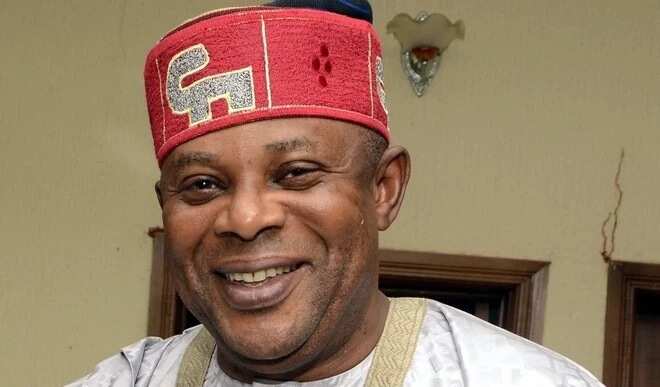The House of Representatives has ordered the Industrial Training Fund ( ITF), to account for over N12 billion difference recorded in their accrued budget actuals as at Dec. 31st, 2022.
Rep. James Falake, Chairman, House committee on Finance gave the order when the management of ITF appeared before it for the 2024-2026 Medium Term Expenditure Framework and Fiscal Strategy Paper interactive session in Abuja.
He expressed grave concern over the failure of the management of the Industrial Training Fund (ITF) to embark on revenue generation from over 128,000 private and public quoted companies operating in Nigeria.
After scrutinizing various financial statements submitted to the Committee, Hon. Faleke queried the disparity with the audited report submitted by ITF, revealing a deficit of over N12 billion
Faleke observed that the difference was noticed in the accrued budget actuals as recorded in the Auditor General’s report for the same period.
He queried the operating expenditure of N39.8 billion in 2022 with a total revenue of N45.1 billion by the ITF, with only 2,691 staff nationwide.
He warned that if ITF failed to account for the difference after 24 hours, it would be forced to refund the entire N3 billion to government coffers.
Mrs Safiya Mansur, Director Finance and Accounts, ITF, said the fund sourced it’s revenue from the one per cent training contributions from public and private companies.
According to her, there are 128,000 registered companies contributing employers to the ITF, out of which only 57,000 are up to date in their contribution.
To ensure compliance, she said, the ITF intensified monitoring of the defaulting companies, where some resorted to litigation but was later resolved due to the intervention of the previous house committee.
Meanwhile, Falake asked the Nigeria Electricity Regulatory Commission (NERC) to explain why it registered a company without capacity to deliver but was given N39 billion to supply prepaid meters for distribution to consumers.
The House also urged Nigeria Communications Commission to explain within 72 hours why it failed to remit about N291 billion revenue to the Consolidated Revenue Fund of the Federation between January 2022 and September 2023.
The NCC said the money was spent on broadband connection in public places such as markets.
Faleke said a company, Ziglasis was contracted by the Federal Ministry of Power and paid N39 billion to supply prepaid meters , but failed to do so after collecting the money for the project.
The Committee queried the Electricity regulator for licensing the company which has not delivered on the contract if signed and collected tax payers money.
He asked the Vice Chairman of NERC, Mr Musiliu Oseni to bring the Managing Director of Ziglasis and officials of the Ministry of Power before the House on Nov 14 to explain why the company had not delivered on the contract.
Responding, the commission said the contract for the supply of the meters was not awarded by the Ministry.
The Committee however insisted that since they gave the license to the company that qualified them for the contract, the commission should produce the management of the company.
The House also queried the agreement entered into between the Nigeria Bulk Electricity Company and Azura power company in the table or pay agreement which committed the country to 30 million dollars power purchase agreement.
Faleke said the agreement with Azura is such that whether or not the company supply power to turn national grid, the country must pay them $30 million monthly, adding that the agreement has a world Bank guarantee.
The House committee also asked Nigerian Communications Commission (NCC) to explain how it spent N291 billion in 2022 on broadband when the money was supposed to have been paid into the CRF.
The Committee Chairman said the NCC should also provide the House with details of the broadband, the location of three projects and other necessary information on how the money was spent.







